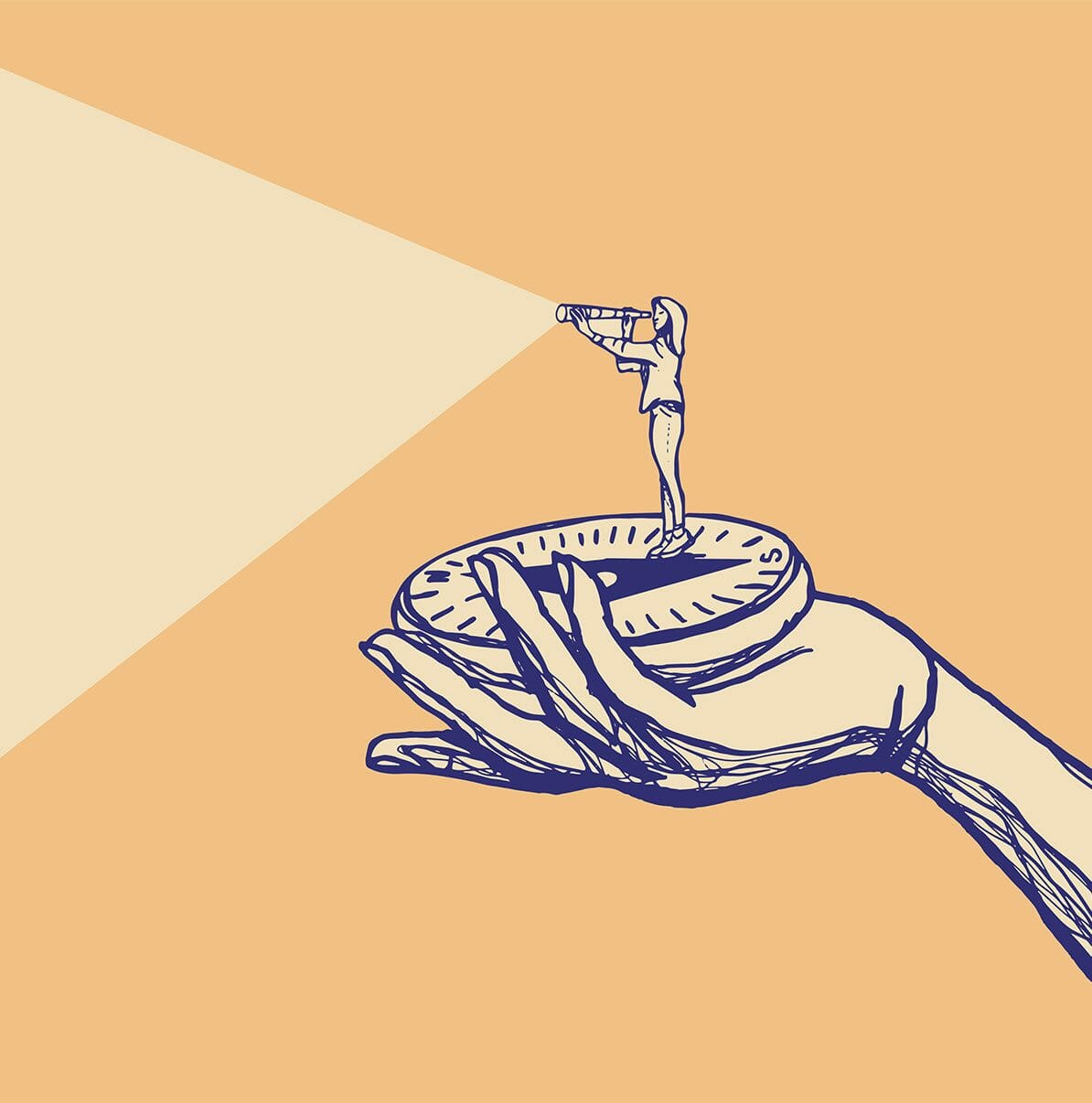Written by Jenna MacFarlane
Illustrations by Jon Sierra
Mental wellness plays a critical role in our daily life. When we shrug distractions and focus on the things that matter to us, the world becomes a bigger and brighter space.
Our ability to pay attention is vital to our overall health and wellness. When we can focus deeply — dedicating hours at a time to one small idea, task or project — the world opens up to us.
“…Distractions can keep us from doing the things we want to do. They can accumulate and keep us from living the lives we want to live, or, even worse, undermine our capacities for reflection and self-regulation, making it harder, in the words of Harry Frankfurt, to ‘Want what we want to want.’”
When we are robbed of our ability to focus, we are robbed of precious and important moments that can be defining to us and those around us. James Williams is co-founder of the Center for Humane Technology, a nonprofit that aims to reimagine technology design in a way that respects users’ attention. He states the following regarding the ethical implications of the effects technology has on our attention spans: “…Distractions can keep us from doing the things we want to do. They can accumulate and keep us from living the lives we want to live, or, even worse, undermine our capacities for reflection and self-regulation, making it harder, in the words of Harry Frankfurt, to ‘Want what we want to want.’”
Ethically speaking, it’s important we understand that it is up to us to ultimately decide what we should focus on.

Our ability to focus is one of the things we cannot allow to be materialized. Our focus is wholly our own. Advertisers can pay a lot of money for it, but we should never allow them to take it from us. It is our responsibility to decide where we place our attention and ultimately, our affections. If we don’t, technology will do it for us.
If you’re ready to re-focus and regain your attention span, here are several simple, but powerful things you can do:
1. Make a list of the things you really want.
Map out an ideal day, hour by hour. A whole day to yourself, free of distractions — what does it look like? How do you feel most fulfilled? Do you wake up early or sleep in late? Do you spend some time outside? Are you with friends and family, or are you alone?
This exercise helps us understand our true desires outside of our day-to-day habits. Once you’ve done this, strategize a few ways to implement those things into your daily life. Take account of your evenings, weekends and holidays; integrate elements of your “ideal day” into them and you will reap the rewards.
2. Avoid asking the question: “What is it good for?”
Our world today encourages us to believe everything around us must possess some productive quality. Always on the hunt, we search for things that make our lives easier and more efficient. We buy shiny new toys to “hack” our productivity. We attend networking events to make friends “in high places.” This is a precarious way to view the world — it’s not entirely wrong, but it risks we lose empathy and nuance.
When we intentionally engage with the world and people with attention and curiosity, we gain insight into the wholeness of each moment. Jenny Odell, author of New York Times best-seller “How to Do Nothing: Resisting the Attention Economy” writes:
Practices of attention and curiosity are inherently open-ended, oriented toward something outside of ourselves. Through attention and curiosity, we can suspend our tendency toward instrumental understanding — seeing things or people one-dimensionally as the products of their functions — and instead sit with the unfathomable fact of their existence, which opens up toward us but can never be fully grasped or known.
3. Practice vocalizing: “My experience is what I agree to attend to.”
Our perceptions shape our experiences in major ways. According to research by neuroscientist Francis Crick, we become conscious by deciding to pay attention. We gain consciousness when we focus. How we decide to perceive our situations ultimately shapes the way we see the world.

As we improve our focus, we better direct our decisions, consequences and associations.
As Odell notes in her book, “We are more keenly aware of our connectedness to others: where we are, where other people are, and what we are doing with each other.”
It’s important to remember that this is an ever-present, continuous process. Sustained attention takes ongoing efforts to bring our attention back to the same thing. We must keep at it, considering it again and again.
It is a privilege to maintain, adapt and focus our attention on the things that really matter to us. When we are able to actually hone in on things that matter most to us, we can also find beauty and nuance in the things that don’t directly serve our interests. This allows us to see the world for what it is: a wonderfully diverse, nuanced and dimensional space, where there is always something new for us to see.
